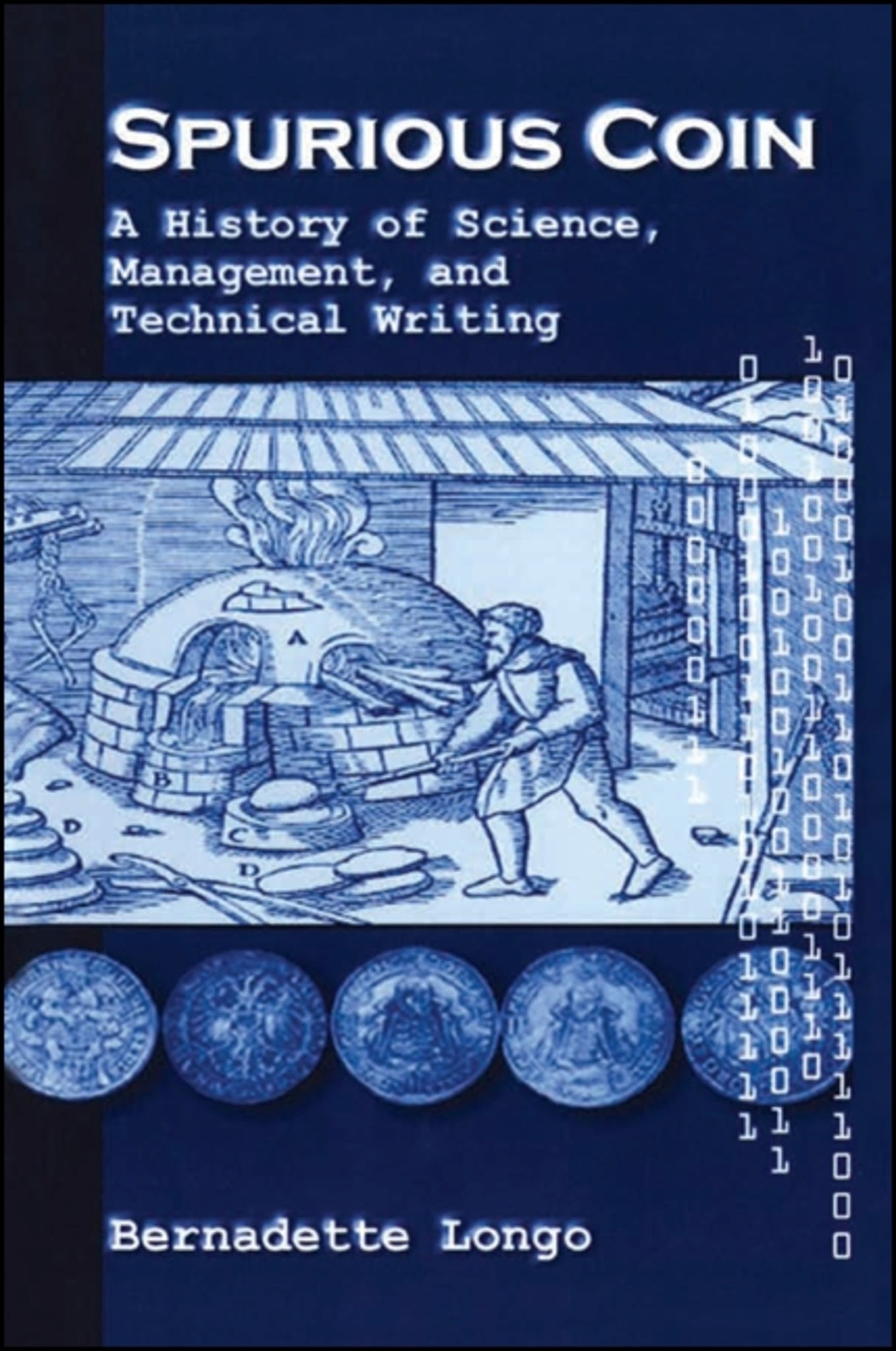We're sorry. An error has occurred
Please cancel or retry.
Spurious Coin

Some error occured while loading the Quick View. Please close the Quick View and try reloading the page.
Couldn't load pickup availability
- Format:
-
04 May 2000

Offers a narrative history of technical writing as a cultural practice and the system of scientific knowledge it controls.
Spurious Coin constructs a cultural history of technical writing in the United States and the system of scientific knowledge and power it controls. Embedded in this history are tensions between scientific and liberal arts knowledge-making that render technical writing both the genuine and counterfeit coin of scientific knowledge within our culture. When scientific knowledge is made by scientists and engineers, it can circulate as genuine currency in an economy where communication makes knowledge. When scientific knowledge is made by liberal-arts trained technical writers, however, it circulates as spurious currency and threatens the purity of the knowledge economy. Because the stability of the scientific knowledge economy is at stake, scientists and technical writers often find themselves at odds over the value of scientific knowledge minted by non-scientists.
Longo constructs this cultural history around a framework of five intellectual trends: the use of clear, correct English; maximum efficiency of production and operation; the need to contribute to a general fund of scientific knowledge for the betterment of the human condition; the tension between the role of science and art within a culture; and a redemptive urge to purify language and standardize practice. She also explores the role of mechanical engineers in designing management systems which rely on technical writing to control operations and profits.


"Longo's project, which provides an interesting explanation of the division that has long existed between those who teach science and those who teach writing about science, is a valuable one. Technical writing has long needed (and awaited) an unapologetic history. Bernadette Longo has provided just that." — Rhetoric Review
"…detail and readability … Longo … evaluates the present-day achievements (and shortcomings!) in a historical context, which is often enlightening … interesting and useful…" — European Science Editing
"Putting scientific, technical, and professional communication practices in cultural contexts is essential, and it is only recently that such work has begun. A history such as this is an extremely important foundation for that enterprise. Furthermore, the illustration of the destabilizing effects of liberal-arts-influenced communicators building economic and political capital within the realms of technological development is fascinating and illuminates the critical role that both instructors and practitioners play in the evolution of technology-driven economies. Finally, the historical sweep of this text is truly impressive. To see the evolution and transformations from the Greeks to the post–World War II America is quite powerful." — Stephen Doheny-Farina, author of The Wired Neighborhood
"Longo has captured for her reader a history that few others have attempted—and no one has done as well." — Mary M. Lay, coauthor of Technical Communication
Acknowledgments
Introduction—Transforming Language into Science
What Is Science? What Is Technology?
Minting the Coin of Scientific Knowledge
Chapter 1—How Credit for Scientific Knowledge Is Appraised
Who Gets Credit?
What Research Does Not See
Looking at Technical Writing Through a Cultural Study Frame
Putting Technical Writing Practices in Cultural Contexts
Issues in Technical Writing Raised Through Cultural Study
Chapter 2—Technical Writing as the Lingua Franca in a Golden Age of Engineering
What Kind of Knowledge Gets Deposited in Textbooks?
The Utility of Experiential Knowledge
The Development of Public Science
Reforming Scholasticism
Chapter 3—The Rise of Experiential Knowledge and Technical Education
John Locke, Language, Property Rights, and Coinage
Defending Science and Technical Education
Chapter 4—Contributing to a General Fund of Scientific Knowledge
Knowledge in Textbooks
Technical Writing Practices in Power and Knowledge Systems
Chapter 5—Engineering Specialized Social Organizations
Engineering as an Application of Pure Scientific Knowledge
Designing Systematic Administration for Canals and Railroads
Engineers Become Managers in Complex Social Organizations
Engineering Management Systems
Chapter 6—Technical Writing as Management System Control
Natural and Military Efficiency
New Communication Technologies Support Systematized Management
Technical Writing Textbook Codifies Systematized Management
Chapter 7—Technical Writers Mint Counterfeit Scientific Knowledge: Strained Relations between Technical Writers and Engineers
Office Management Becomes a Specialized Field
The Practicality of Engineering in Tension with the Enjoyment of Literature
Technical Writing Moves from Engineering to English
English Embraces Science
Chapter 8—Whose Knowledge Is Powerful?
Toward a Humanistic Technical Writing
Notes
References
Index



